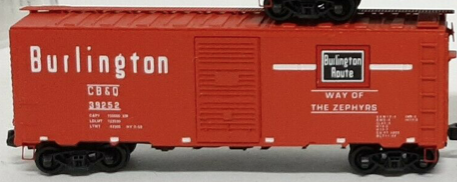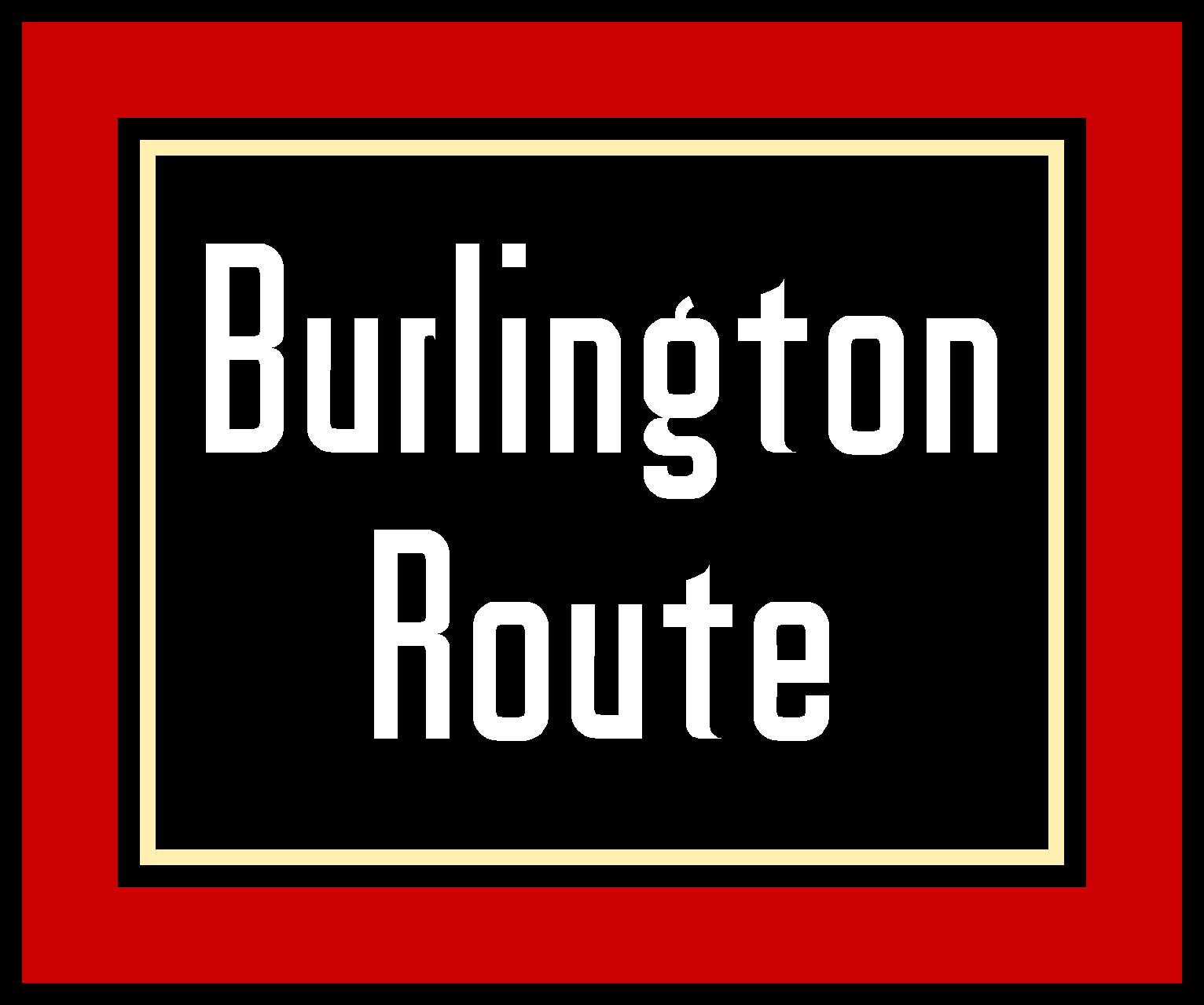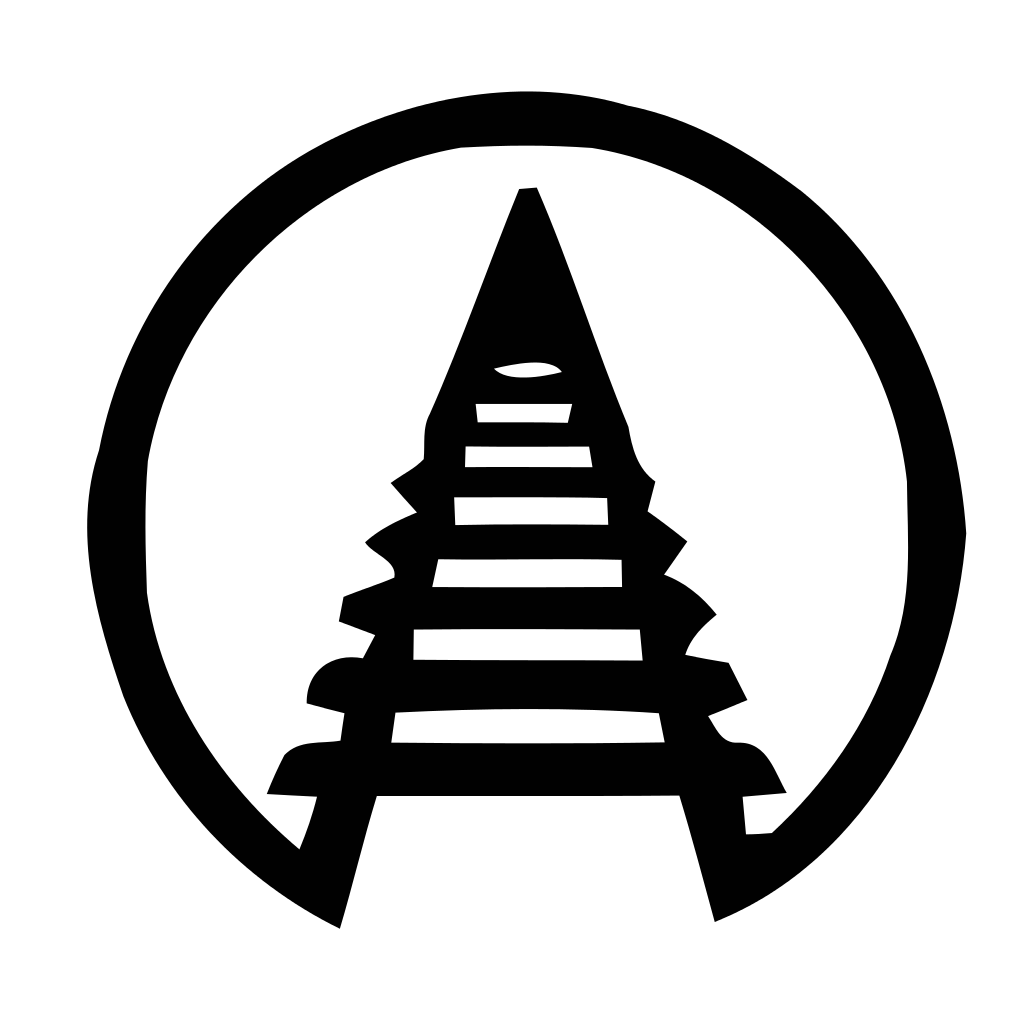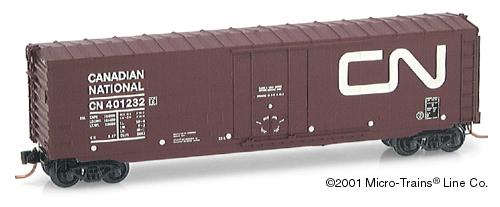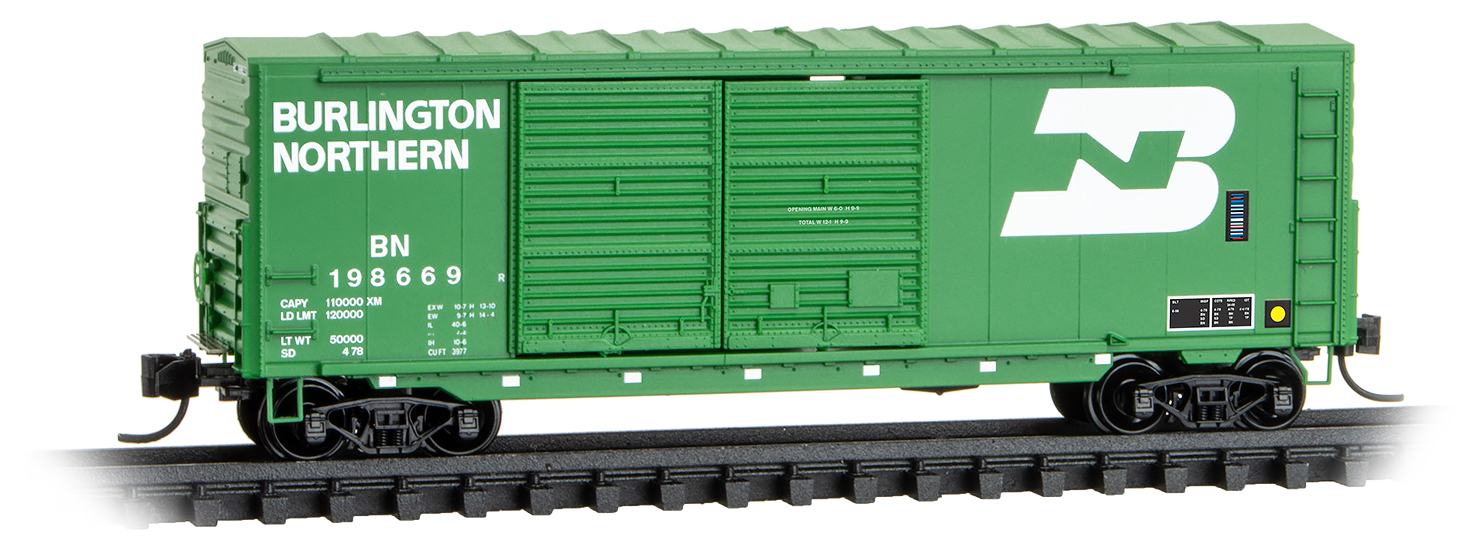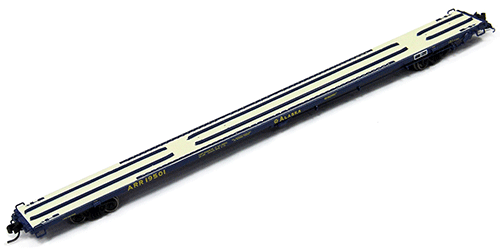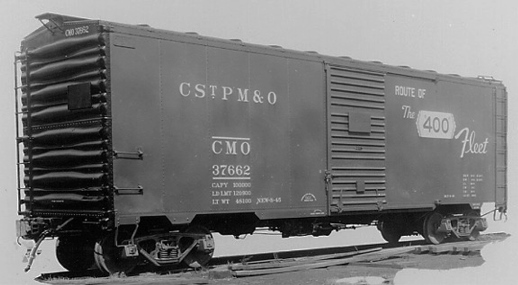Prototype History: The Association of American Railroads had been establishing design standards for freight cars since the early part of the century. Each new design standard meant higher capacity, lighter, more durable cars. The 1937 standard 40' box car featured an interior height of 10'. Just prior to America's entry into the war, there was a push for an even larger interior height for the AAR standard. The first cars that would eventually be termed 1944 AAR, were actually built in 1941 but the war delayed its declaration as the standard. The new taller cars required a new design of end. Corrugated metal ends had been used since the days when wood side cars dominated for a very good reason, shifting loads would burst through wooden ends during sudden starts and stops! These corrugated panels were stamped in two sections, split horizontally down the middle. The 1937 standard had 5 ribs on one half and 4 ribs on the other -- creating what is called a 5-4 Dreadnaught end. The slightly taller 1944 model required something a little different. The lower panel has 4 ribs while the upper panel has 3 then a space and a final rectangular rib at the top. Called a 4-3-1 (or R-3-4) Improved Dreadnaught end, this design would dominate new box car construction for years.
Road Name History: The Chicago, Burlington and Quincy Railroad (reporting mark CBQ) was a railroad that operated in the Midwestern United States. Commonly referred to as the Burlington or as the Q, the Burlington Route served a large area, including extensive trackage in the states of Colorado, Illinois, Iowa, Kentucky, Missouri, Montana, Nebraska, Wisconsin, Wyoming, and also in New Mexico and Texas through subsidiaries Colorado and Southern Railway, Fort Worth and Denver Railway, and Burlington-Rock Island Railroad.[citation needed] Its primary connections included Chicago, Minneapolis-St. Paul, St. Louis, Kansas City and Denver. Because of this extensive trackage in the midwest and mountain states, the railroad used the advertising slogans "Everywhere West", "Way of the Zephyrs", and "The Way West". It merged into Burlington Northern in 1970.
In 1967, it reported 19,565 million net ton-miles of revenue freight and 723 million passenger miles; corresponding totals for C&S were 1,100 and 10 and for FW&D were 1,466 and 13. At the end of the year CB&Q operated 8,538 route-miles, C&S operated 708 and FW&D operated 1362. (These totals may or may not include the former Burlington-Rock Island Railroad.)
Information sourced from Wikipedia
In 1967, it reported 19,565 million net ton-miles of revenue freight and 723 million passenger miles; corresponding totals for C&S were 1,100 and 10 and for FW&D were 1,466 and 13. At the end of the year CB&Q operated 8,538 route-miles, C&S operated 708 and FW&D operated 1362. (These totals may or may not include the former Burlington-Rock Island Railroad.)
Information sourced from Wikipedia
Brand/Importer Information: DeLuxe Innovations is a "wholesale manufacturer" of model trains. We manufacture scale replica train models and sell them to hobby shops and distributors worldwide. 2013 marked the 20 year anniversary of DeLuxe Innovations brand trains. There are over 25 body styles in our product line and all of the cars in our single and multi-car packs have different road numbers. DeLuxe Innovations, Inc. is owned by Dave Ferrari, founder of Squeak N Products. We are located in Midland Park, New Jersey. When Dave purchased the business it was located in Burbank, California which would have been a bit of a long commute so the move to the East Coast was planned. Our first East Coast location was in Whippany, NJ along the Whippany River.
The business was started in 1993 by George Johnsen and Roberta Liebreich in Burbank, California. They had a philosophy that just wouldn't allow using a coal car as a "stand in" for a woodchip car, or printing any and all boxcar paint schemes on a PS-1. Starting with the release of the first ever etched metal parts for a ready to run car (1994's Twinstack's metal walkways) through the full dimension underframe and etched metal roofwalk (1996's 1944 AAR Boxcar) to the challenging RoadRailer system (2000), our products have been accurate to target the modeler or enthusiast.
You can also follow DeLuxe on Twitter
The business was started in 1993 by George Johnsen and Roberta Liebreich in Burbank, California. They had a philosophy that just wouldn't allow using a coal car as a "stand in" for a woodchip car, or printing any and all boxcar paint schemes on a PS-1. Starting with the release of the first ever etched metal parts for a ready to run car (1994's Twinstack's metal walkways) through the full dimension underframe and etched metal roofwalk (1996's 1944 AAR Boxcar) to the challenging RoadRailer system (2000), our products have been accurate to target the modeler or enthusiast.
You can also follow DeLuxe on Twitter
Item created by: Powderman on 2018-10-11 18:28:10. Last edited by CNW400 on 2020-07-29 13:24:56
If you see errors or missing data in this entry, please feel free to log in and edit it. Anyone with a Gmail account can log in instantly.
If you see errors or missing data in this entry, please feel free to log in and edit it. Anyone with a Gmail account can log in instantly.


